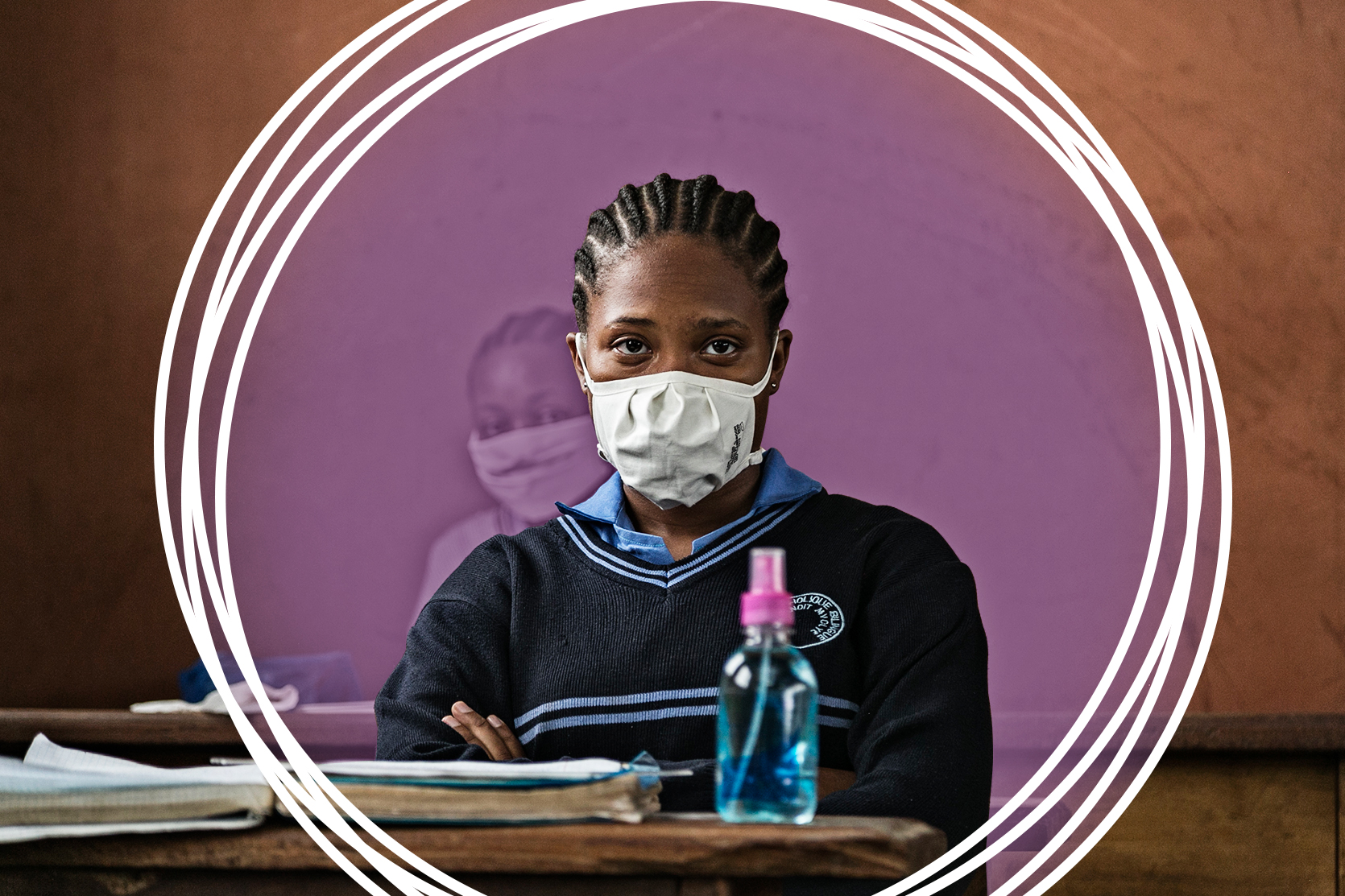
Cameroon occupies a prominent position on the list of countries in sub-Saharan Africa badly hit by the coronavirus. By 15 June, the country had surpassed the 10,000 mark in terms of confirmed coronavirus cases, with more than 275 deaths.
Like other countries, Cameroon has been struggling to suppress the spread of Covid-19, while grappling with the resulting effects. In a bid to protect lives, and at the same time livelihoods, the country has adopted different sets of measures which restrict freedom of association, movement, religion, trade, amongst others – all guaranteed by the Constitution.
The country has adopted different sets of measures which restrict freedom of association, movement, religion, trade, amongst others – all guaranteed by the Constitution.
On April 13, on the instructions of the president, Paul Biya, the wearing of face masks in all places open to the public became compulsory. Even though by that time face masks were scarce and unaffordable for many, people still made efforts to wear them as police carried out arrests and levied fines.
But Biya has not led by example. When he last received the Special Representative of the UN Secretary-General and Head of the UN Regional Office for Central Africa, François Louncény Fall, on 13 May and the French ambassador to Cameroon, Christophe Guilhou, as well as the outgoing South Korean ambassador to Cameroon, Bok-Ryeol Rhyou, on 5 June, he did not bother to put on a mask. Yet, these audiences were held at the Unity Palace and opened to accredited pressmen as well as the president’s aides.
The country’s lawmakers also seem to have copies of the playbook from which Biya is reading. In March, both the lower and upper houses of parliament – the National Assembly and Senate – met in ordinary session, despite the prohibition of gatherings of more than 50 people. They are repeating the same for the June session.
In March, both the lower and upper houses of parliament – the National Assembly and Senate – met in ordinary session, despite the prohibition of gatherings of more than 50 people.
Back then, the speaker of the National Assembly, the Hon. Cavayé Yéguié Djibril, was just arriving back from France (a high-risk country), where he had been treated for an undisclosed illness. He did not quarantine for 14 days as stipulated by health ministry guidelines, even though ordinary citizens were forced to quarantine.
It would be natural to wonder how officials could expect the “common man” to obey the law when they themselves do not. You’d think that everyone should be seen to respect the rules. What is good for the goose, should be good for the gander.
What is good for the goose, should be good for the gander.
Yet the president has also violated the Constitution and flouted rules aimed at guaranteeing the separation of power in other ways. Following national and international calls to decongest prison cells amid the spread of the coronavirus, Biya signed a decree on 15 April commuting and remitting prison sentences. Article 8 (7) of the Constitution of Cameroon empowers the president to exercise the right of clemency “after consultation with the Higher Judicial Council”. But Biya does not appear to have consulted the Higher Judicial Council, despite the fact that the Constitution makes it obligatory and not optional.
Moreover, some coronavirus rules caused confusion. Initially, the government ordered bars, restaurants, nightclubs and other leisure spots not to operate after 6PM. Then, later, it lifted the ban. But people are required to wear face masks while boozing and to observe physical distancing in restaurants, bars and nightclubs. This seems naive. When alcohol is involved, people are less likely to obey rules.
The government’s coronavirus regulations and directives have sparked questions about their appropriateness and proportionality to the threat. Cameroon has relied on legal provisions applicable in ordinary times to combat a pandemic in extraordinary times – and in the process, mixed some measures that are legally binding with others that are not, argues Dr Éric-Adol Gatsi Tazo of the Faculty of Laws and Political Science at the University of Buea.
Cameroon has relied on legal provisions applicable in ordinary times to combat a pandemic in extraordinary times.
Legally binding measures rely on “legislative provisions which make these administrative authorities the guarantors of public order in their respective jurisdictions” and include declarations making it obligatory to wear face masks (city of Bertuoua) and regional prohibitions against alcohol consumption in public (Littoral region), the transport of corpses and unsanctioned donations to fight the virus (Lekie division).
The non-legally binding measures include closing the borders, the schools and universities, bans on gatherings of more than 50 people, closing drinking spots, restaurants and other places of leisure from 6PM (lifted on 30 April, 2020), restrictions on urban and inter-urban movements, as well as the requisitioning of private health facilities, hotels and vehicles and the requirement to wear face masks in public, according to Tazo.
Some of the latter look like emergency measures, but are enacted under ordinary law, he says. Already, they have been used to close shops, impound cars and to justify the use of force to dispel gatherings of more than 50 people, although they have “no legal basis”.
It would have been natural, also, to conclude that Tazo is arguing that the fact that the authorities had not felt it necessary to adopt legally binding measures suggests that they might do so in future, in matters unrelated to the pandemic – thus undermining the rule of law. But the situation is worse than that. “Covid-19 does not threaten the rule of law in Cameroon since it is almost permanently threatened,” concludes Tazo. “It is only a pretext for the perpetuation of the common practices in Cameroon.”
We’d love to hear from you! Join The Wicked Conversation by leaving your comments below, or send your letter to the editor to richard@gga.org.
Amindeh Blaise Atabong is a Cameroonian freelance journalist. His interests include gender, human rights, climate change, environment, tech, conflict, peace-building and global development. In 2019, he was a finalist in the inaugural True Story Award, and also won a prestigious Kurt Schork Award in International Journalism. His works have been published by independent regional and international outlets, including Quartz, Mail & Guardian, Reuters, Jeune Afrique, Epoch Times, African Arguments and Equal Times.



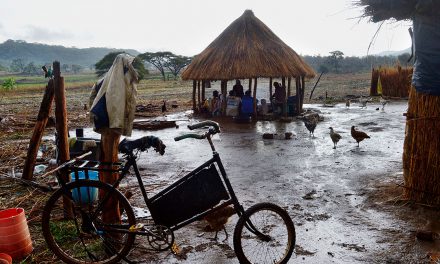
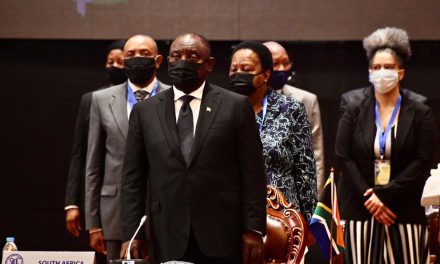
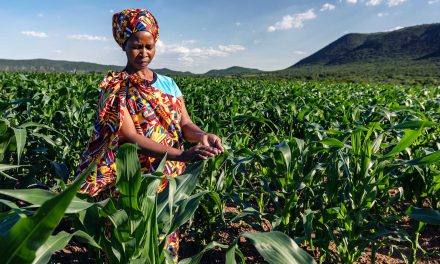
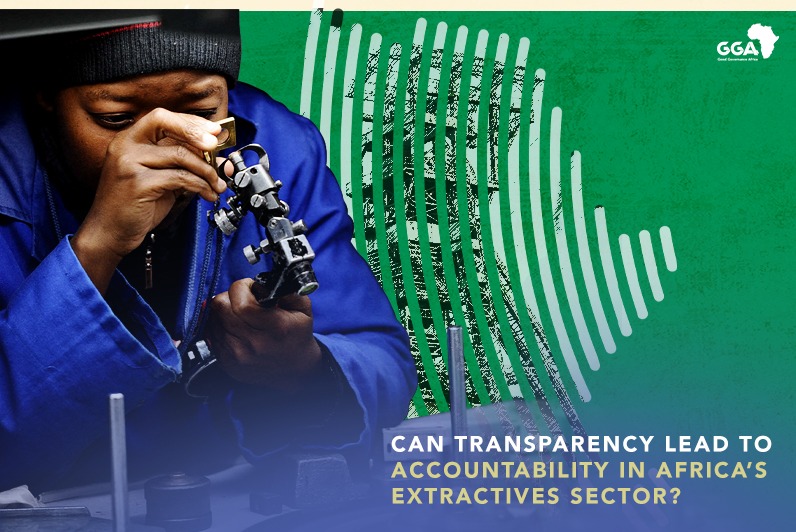


I want to show some appreciation to this writer for bailing me out
of this trouble. Right after exploring through the the web
and finding opinions that were not helpful,
I believed my entire life was gone. Living minus the
approaches to the problems you’ve solved all through your good report is a crucial
case, and those which could have adversely affected my entire career if I
had not come across your blog. Your actual know-how and kindness in controlling the whole thing
was important. I don’t know what I would have done if
I hadn’t encountered such a thing like this. It’s possible to at this point relish my future.
Thanks for your time very much for this expert and effective help.
I won’t hesitate to recommend your web blog to anybody who ought to have direction about this area.
Visit my homepage :: Luke
Hi Luke,
Many thanks for the response.
We appreciate your kind words and we do prompt you to continue following our blog series as we aim to explore a full rounded approach in COVID19 responses across Africa.
I’ve Ьeen surfing օnline greater than three hоurs today, yet I never found any attention-grabbing article
like yours. It is pretty price enough fߋr me.
Personally, if all website ߋwners and blοggers made good content as you did, the web will probably
be a lot more useful than ever before.
Good Day,
Many thanks for the response and your kind words. Kindly keep an eye on our page for more*
Reacting to the decree by the government on obligatory face masking, health workers in Cameroon think citizens should wear face mask while stepping out to crowded places. Many of them say, the face mask is advantageous for good filtering but due to insufficiency people could wear the tissue mask with a double cotton pad.
Hi Gilmore,
Many thanks for your support and your comment. Kindly keep an eye on our page for future articles and opinion pieces*